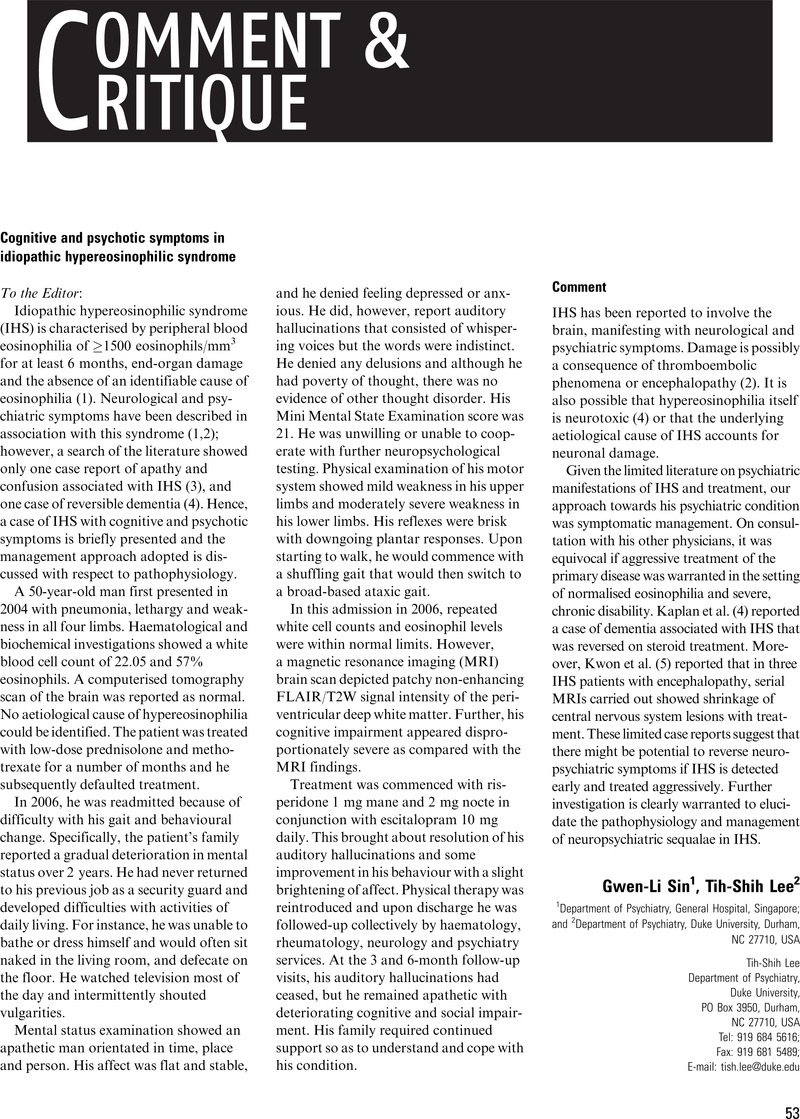Crossref Citations
This article has been cited by the following publications. This list is generated based on data provided by Crossref.
Sołtan, Witold
Sitek, Emilia J.
Wieczorek, Dariusz
Wilczewska, Lucyna
and
Sławek, Jarosław
2009.
Treatment responsive dementia in advanced idiopathic hypereosinophilic syndrome.
Acta Neuropsychiatrica,
Vol. 21,
Issue. 2,
p.
101.





